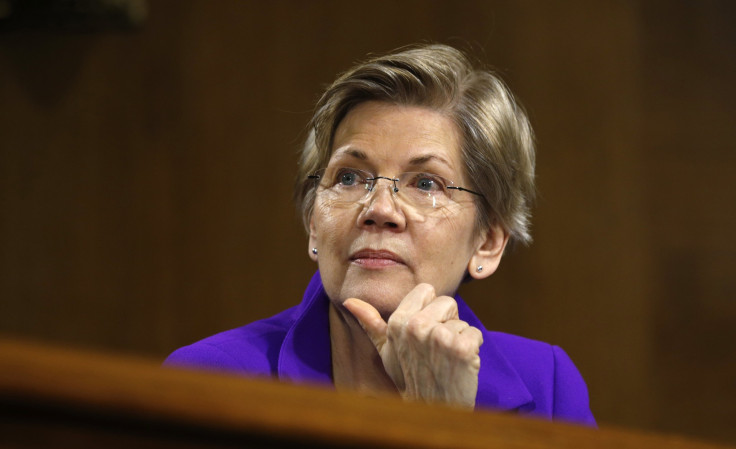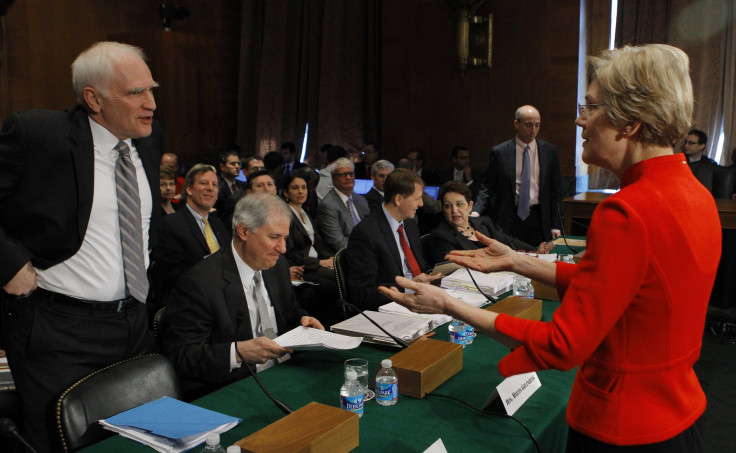Anti-Trump Laws: Elizabeth Warren Introduces Presidential Conflicts Of Interest Act Of 2017

Massachusetts Sen. Elizabeth Warren vowed to fight back against President-elect Donald Trump "and his team of billionaires, bigots and Wall Street bankers" while announcing Friday her 2018 Senate re-election bid. The firebrand Democrat – who also happens to be one of the loudest voices opposing Trump’s presidency – immediately got to work on that promise, introducing the Presidential Conflicts of Interest Act of 2017 Monday morning.
The latest legislation, which arrives just weeks before Trump is set to take over the White house on Jan. 20, will force any incoming president and vice president to disclose and divest any potential financial conflicts of interest. Trump has previously said he plans on putting his sons, Don and Eric, along with several other executives, in total control of his businesses before becoming president of the United States, a move which certainly doesn’t equate to a "blind trust" presidents with potential conflicts of interest typically employ while transitioning to the highest office in the country.
The Presidential Conflicts of Interest Act of 2017 received vast support among Democrats and virtually zero support from Republican senators. The bill was originally co-sponsored by Warren, along with Sen. Chris Coons, Sen. Jack Reed, Sen. Cory Booker and several other leading Democratic incumbents and newcomers alike.
"The American people deserve to know that the President of the United States is working to do what’s best for the country – not using his office to do what’s best for himself and his businesses,” Warren said in a statement sent to International Business Times. “The only way for President-elect Trump to truly eliminate conflicts-of-interest is to divest his financial interests by placing them in a blind trust. This has been the standard for previous presidents, and our bill makes clear the continuing expectation that President-elect Trump do the same."
Currently, the president and vice president remain exempt from a law applied to most other executive branch employees barring them from having any financial stake in government activities.

"The president of the United States has the power to affect how our tax dollars are spent, who the federal government does business with, and the integrity of America’s standing in a global economy," said Clark. "Every recent president in modern history has taken steps to ensure his financial interests do not conflict with the needs of the American people. The American people need to be able to trust that the president’s decisions are based on the best interests of families at home, and not the president’s financial interests."
The new bill further pits Democratic senators against Trump as he makes his way to the White House, as officials continue to press the president-elect to release his tax returns, remove himself from his business interests and clear the cloudiness surrounding the future of his family’s financial interests while serving as the 45th president. Moreover, it pits Warren – a likely contender for the same office Trump successfully won during the 2016 presidential election – that much more against Trump for the years to come.
© Copyright IBTimes 2024. All rights reserved.












